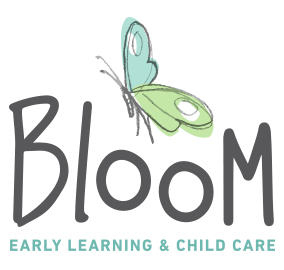Surgeon General Advisory: Crisis in Parental Stress
14 Tips to Alleviate Parental Stress
Parents are experiencing unique stressors that other adults don’t face. According to Parental Mental Health & Well-Being and Parents Under Pressure: The U.S. Surgeon General Advisory on the Mental Health and Well-Being of Parents,” 48 percent of parents say that most days their stress is completely overwhelming compared to 26 percent among other adults. These stressors include time demands, children’s physical and online safety, and parental isolation and aloneness.
Moreover, Dr. General Vivek H. Murthy, U.S Surgeon General mentioned new stressors — loneliness, and complexity of managing social media. This crisis was also covered by KARE11.
Tips to manage these stressors include:
- Have more fun: Play with your child, UNICEF (and partner LEGO Foundation) recommends in “How to Reduce Stress.” You can both enjoy time together and you’ll feel less isolated. Playing releases endorphins, helping create caregiver or parental well-being.
- Be Positive and Problem Solve. UNICEF recommends that you try to be positive in the face of difficulties. Solutions may be easier to find if you’re more hopeful.
- Use self-care strategies. Amy Giguere Carney in “Self-Care Strategies for Parents & Caregivers,” lists several of these strategies such as mindfulness and breathing, planning for high-stress times of day, and making a DONE List.
-
- Manage time demands: Consider choosing one or two extracurricular activities at a time for your child. Add low-key family activities. Prepare meals during the weekend, order groceries for delivery, and order products and services online.
- Create a schedule for your family to perform chores. Arranging a schedule for participation in routine family chores can help you feel more in control of your house and teach children responsibility. By creating the schedule, it will be easier to keep space tidy and clean, preventing you from feeling overwhelmed and teaching children the value of being a contributor to the household.
- Determine your family’s priorities. By Identifying what is necessary to be completed at home, you can reduce your anxiety. Develop a plan with your family to identify the priorities and meet them. Ensure that your family understands what is necessary (and what isn’t) so you can incorporate it in the plan.
- Remember that you are not alone. UNICEF recommends in “How to Reduce Stress.” that you speak to a trusted friend or relative about your problem. If your child is in a preschool, schedule an appointment with a staff member.
- Enjoy fitness activities and get proper rest. Choose your favorite fitness activities, perhaps taking a walk, or attending yoga practice or other fitness classes. These give you another opportunity to have fun with your children. Getting proper rest will help you alleviate stress.
Tips for Under-Resourced Families
Students who come from under-resourced families face even more challenges. Families may face financial strain, economic instability, and poverty, in addition to the stressors other parents and kids face. Bloom board member Deb Ottman told us about local resources that can assist parents.
- Discover resources from Interfaith Outreach (IOCP) The organization provides food, housing and employment assistance.
- Learn about education at Bloom. Scholarships at Bloom may be available for children from under-resourced families with 50 percent of spaces reserved for children from these families.
- Explore other support at Bloom. The school provides free food and supplies and operates a yearly free rummage “sale” for clothes.
Side bar: More Tips for Parents of Children with Disabilities
- Remember that you are not alone. Others can play a role in helping with childcare and your other parental needs. If you need support, speak to a trusted friend or relative about your problem. If your child is in a preschool, schedule an appointment with a staff member. Ask for help, don’t wait for a friend or relative to approach you. Consider consulting with other professionals or community groups or join a group of parents with kids like yours. Choose from online or in-person groups.
- Take a break. The National Respite Network offers detailed information about in-home and out of home care to give you time away from parenting. While a weekend away might be great, even part of a day can make a difference. Carney said that College students in the fields of special education, psychology or social work can be great for this purpose. While you are at home, young teens and adolescents can be of assistance.
- Locate resources that can support your child. Consider consulting with other professionals or community groups or join a group of parents with kids like yours. Choose from online or in-person groups.
- Find sources of case management. At Bloom, we have a partner, who
helps children and families navigate community resources to support parents. States may offer funding for respite care. Find out how you may access state resources for this purpose. - Manage time demands. There are multiple tasks in supporting a child with disabilities, everything from scheduling appointments with specialists to taking them to special activities. Find someone to handle at least some of the tasks for you.
- Address any concerns about your child’s development. If you child is in school, connect with your child’s teacher first. Teachers or families can call Help Me Grow Minnesota which is an organization that can assist a child obtain a referral for further evaluation. The organization connects families to resources that help young children develop, learn and grow.
For more information, view the full surgeon general’s advisory.
Learn more about IOCP and its services.

Irene Connors donates her time grant writing and blogging for social service agencies. She served as an information officer/communications specialist for most of her career at the Minnesota Department of Employment and Economic Development (DEED). In addition, she had a role in the Workforce Development unit in which she assisted job seekers find meaningful careers. Prior to joining DEED, she was employed at Allina Health as a communications coordinator and as an economist at the U.S. Department of Labor in Washington, D.C. She earned a bachelor’s degree from the University of Virginia and completed graduate work in professional communication at the University of St. Thomas (Twin Cities).







